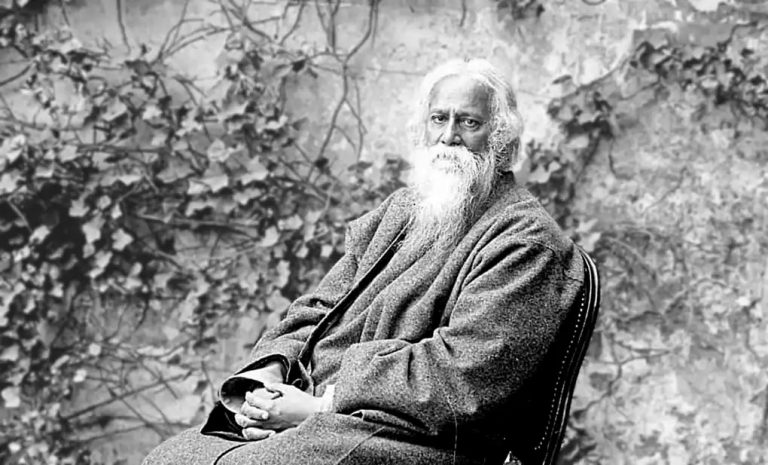Rabindranath Tagore, often referred to as the “Bard of Bengal,” was a multifaceted genius whose influence on Indian literature and culture remains profound. His life and works resonate not only in India but also across the world. In this article, we will explore the remarkable contributions of Rabindranath Tagore to Indian literature and culture, and delve into his three most renowned literary creations.

Source: https://besharamagazine.org/arts-literature/rabindranath-tagore-participating-in-the-divine-playfulness/
A Glimpse into Tagore’s Life:
Rabindranath Tagore was born in Calcutta (now Kolkata) in 1861 to a family deeply rooted in the arts and culture. His early exposure to literature and music in an intellectually stimulating environment laid the foundation for his creative journey.
Influences on Indian Literature and Culture:
- Poetry that Touches the Soul: Tagore’s poetry is a lyrical marvel that captures the essence of human emotions and nature. His poems have inspired generations of poets and continue to be recited in homes, schools, and gatherings across India.
- Pioneer of Bengali Literature: Tagore’s contribution to Bengali literature is immeasurable. He rejuvenated Bengali literature by introducing new forms of poetry, short stories, and plays.
- Educational Reformer: He founded the world-renowned Visva-Bharati University in Santiniketan, a place where education was intimately connected with nature and creativity. This institution remains a beacon of progressive education.
- National Anthem: Tagore’s composition, “Jana Gana Mana,” was adopted as India’s national anthem, symbolizing unity in diversity.
- Nobel Laureate: In 1913, Tagore became the first Asian to be awarded the Nobel Prize in Literature for his book of poems, “Gitanjali” (Song Offerings). This recognition brought Indian literature to the global stage.
Three Iconic Works by Rabindranath Tagore:
- Gitanjali (Song Offerings): This collection of poems, originally written in Bengali and translated into English by Tagore himself, is a poetic masterpiece. It explores themes of spirituality, love, and the human connection with the divine. “Gitanjali” earned him the Nobel Prize and remains a literary treasure.
- The Home and the World (Ghare-Baire): Tagore’s novel delves into the complex themes of nationalism, personal freedom, and the clash between tradition and modernity. It presents a nuanced exploration of the Indian independence movement.
- Rabindra Sangeet: Tagore’s musical compositions, known as Rabindra Sangeet, form an integral part of his legacy. These songs, with their soul-stirring lyrics and melodies, celebrate the beauty of nature, love, and the human spirit.
Rabindranath Tagore’s influence on Indian literature and culture is immeasurable. His poetic brilliance, literary contributions, and educational philosophies continue to inspire and shape the artistic and intellectual landscape of India and the world. As we celebrate his enduring legacy, we are reminded of his timeless message of universal harmony, creativity, and the pursuit of truth through art and literature. Rabindranath Tagore’s works remain a testament to the enduring power of the written word and the ability of literature to transcend boundaries and touch the human soul.

